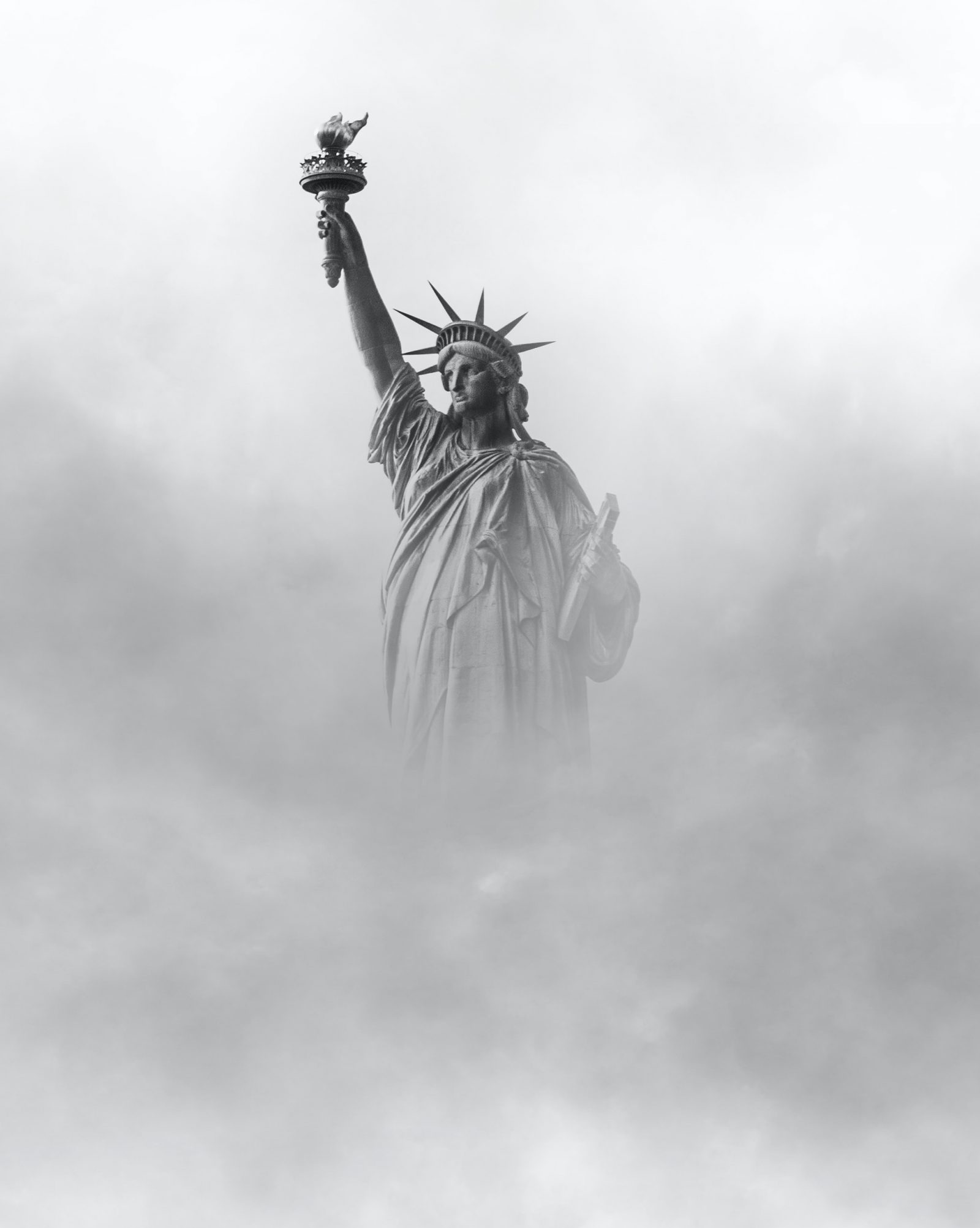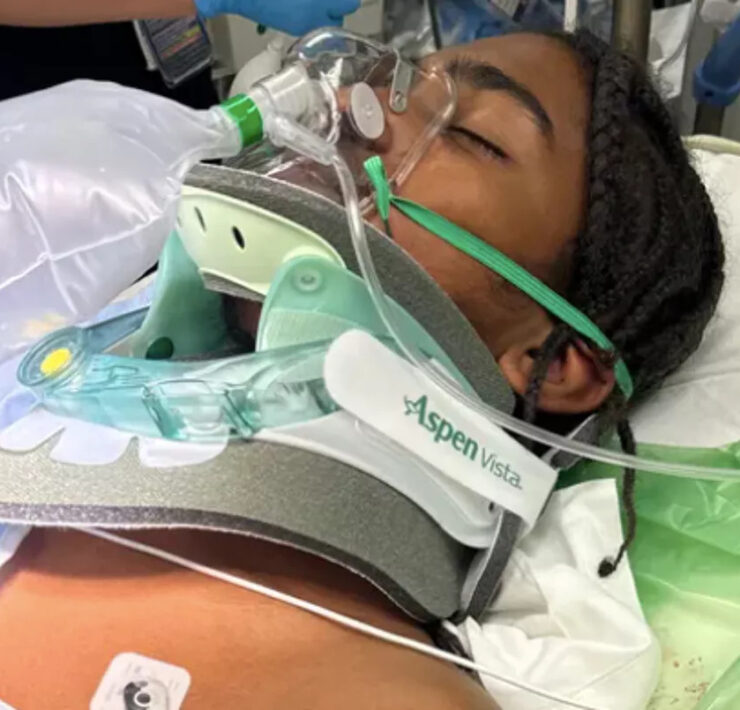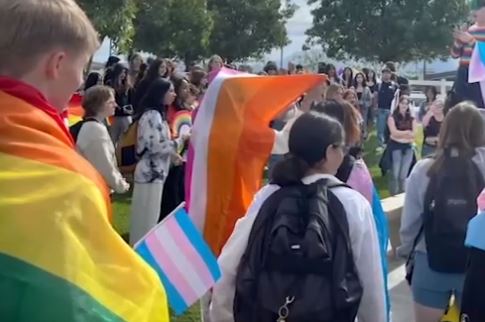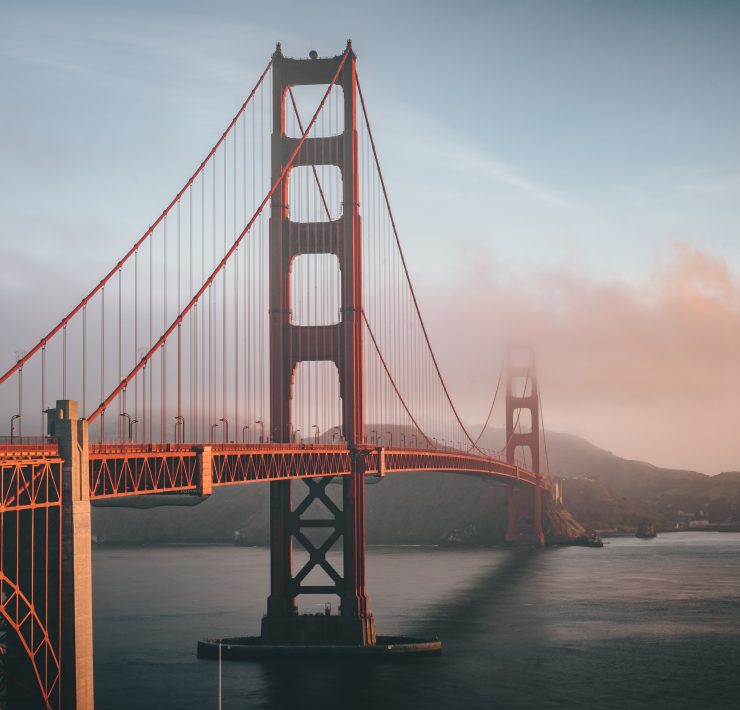Kamala Harris: First Female, POC VP

Ray has with OUT FRONT Magazine since February of 2020.…
When the Associated Press called Joe Biden as the winner of the 2020 Presidential Election, history was made. Kamala Harris now holds the distinction of being the first woman, first Black person, and first South Asian person elected vice president. The significance of this, after a year like the past one, was not lost on voters throughout the country.
Jen Elis, the educator behind Senator Sanders’ now-famous mittens, reflected on how Vice President Harris’ inauguration impacted her household.
“It was so powerful to sit with my daughter, who I love so much, and be like, ‘This is where you enter politics, right? We have shielded you from Trump as much as possible, but this is what we want you to see: a wonderful, successful woman of color in such a powerful position.’ It was great to share that with [my daughter] and my partner, who’s also a woman, so we’re just a huge, feminist household celebrating this momentous occasion.”
For many women and girls across the United States, Harris’ election represents progress, hope, and the final blow to the proverbial glass ceiling. Harris has long credited female civil rights legends like Shirley Chisholm, Mary McLeod Bethune, and Fannie Lou Hamer as sources of inspiration, as well as her mother, Shyamala Gopalan.
Within the last few election cycles, more women have begun taking office. In fact, the 2020 election saw a total of 111 new, female members of the House of Representatives, 11 of which were republican, an important detail, as previous elections saw only female democrats win.
Harris was born in Oakland to immigrant parents, her mother originally from India and her father from Jamaica. Before her election into the vice presidency, Harris was a deputy district attorney and served as the district attorney of the City and County of San Francisco. She was the first Black person and the first woman to become California’s attorney general, a position she held until 2016, when she ran to represent California in the U.S. Senate. She was also California’s first Black senator and the country’s first South Asian-American senator.
Vice President Harris has long been an advocate for women’s rights. She has been a pro-choice supporter for many years, and during the 2020 vice presidential debates, she let her outrage over the lack of conversation surrounding reproductive rights be known.
“This is the sixth debate we have had in this presidential cycle. And not nearly one word, with all of these discussions about healthcare, on women’s access to reproductive healthcare, which is under full-on attack in America today. And it’s outrageous.”
However, the vice president is not without her skeptics. She has received backlash in the past for her record as a prosecutor, district attorney, and attorney general, a complicated history which was described in a Vox News article as follows:
“She pushed for programs that helped people find jobs instead of putting them in prison, but also fought to keep people in prison even after they were proved innocent. She refused to pursue the death penalty against a man who killed a police officer, but also defended California’s death penalty system in court. She implemented training programs to address police officers’ racial biases, but also resisted calls to get her office to investigate certain police shootings.”
A history which seems full of contradictions; however, some supporters claim this was part of a delicate balancing act. Her race and gender only added to the complicated juggling of being California’s highest-ranked, law-enforcement official while also seeking to pass criminal justice reform.
After her historic win as VP, Kamala Harris’ short bio and history within politics was added to the National Women’s History Museum website. And, on the evening of November 7, 2020, standing on an outdoor stage in Wilmington, DE, Harris—wearing a suit in suffrage white—spoke to a crowd of cheering Americans about the work women have done, and continue to do, in the United States. She said:
“When [my mother] came here from India at the age of 19, maybe she didn’t quite imagine this moment. But, she believed so deeply in an America where a moment like this is possible. So, I’m thinking about her and about the generations of women—Black women, Asian, white, Latina, and Native-American women throughout our nation’s history who have paved the way for this moment tonight. Women who fought and sacrificed so much for equality, liberty, and justice for all, including the Black women, who are too often overlooked, but so often prove that they are the backbone of our democracy … But, while I may be the first woman in this office, I won’t be the last. Because every little girl watching tonight sees that this is a country of possibilities.”
What's Your Reaction?
Ray has with OUT FRONT Magazine since February of 2020. He has written over 300 articles as OFM's Breaking News Reporter, and also serves as our Associate Editor. He is a recent graduate from MSU Denver and identifies as a trans man.










